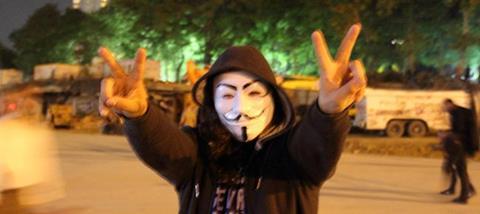
During the 2011 riots that started in Tottenham, I found myself in a car trying to avoid mobs of people wielding bats and clubs, silhouetted against flames like something out of a post-apocalyptic thriller.
It was deeply annoying. But it was not the most annoying part of the experience.
The most annoying thing was the senselessness of it. The riots were sparked by apparent police brutality, so why were the mobs not attacking police stations or government offices? The riots were apparently about a sense of disenfranchisement among the poor – so why attack independent stores and deprived-area flats rather than multinational chains or wealthy suburbs? The ideological randomness and the lack of focus still annoys me today.
Even more annoying were the op-eds afterwards, not only justifying the vacuous, Lord of the Flies displays of looting, destruction and violence, but even denouncing those who came out afterwards to clean up as agents of gentrification. This liberal tosh does no good for the cause of spirited dissent, but it does raise an important question: must protests be polite? Should they at all costs avoid becoming rowdy, aggressive and messy? Is it ever okay for them to be destructive?
As a Christian, I am generally opposed to violence. While I believe our world requires radical re-ordering for justice to reign, I cannot support bloody revolution. Killing, even for a good cause (whether you’re a rebel or wear a uniform) makes me deeply uncomfortable – and I believe violence against people should be a source of deep concern for every Christian.
Violence against property though, (if indeed it can be classed as violence), I’m way more ambivalent about. And ambivalence is all I’m asking for here.
There is a certain brand of conservatism (note the small c) which seems to assume that protests and demonstrations for justice should, if they are to be in any way legitimate and receive our approval, be as ordered and organised as National Theatre productions or military marches. A sense that if the people demanding an end to some profound injustice do not do so with the demeanour of a Downton Abbey servant, they should be ignored. And arrested. Possibly shot.
Let me reiterate: hurting people is usually wrong. Killing them is, I suspect, always wrong. I’m not talking about that. I’m talking about scenes of disorder and disruption, perhaps unsanctioned protests or unlawful gatherings (a term familiar to anyone who lived in Apartheid South Africa), where bins get emptied out and possibly set on fire. Where glass gets broken and inanimate objects wrecked, as we have seen in South Africa over the last week. Scenes every organiser of a peaceful protest fears perhaps more than a kettling or beating by police, because they could undermine the message of their demonstration.
If a protest spills over into unhelpful destruction of property, I think we should take time to think before we condemn it.
And I understand: if I was the owner of a shop, a bike, a window or home that got broken in the course of anger overflowing on the streets, I’ be annoyed. I’d want to shout, as I did in 2011, 'What you’re angry about is not my fault!' But sometimes we need to realise that our property is not of paramount importance.
When a poor man steals a loaf from a shop to feed his family (I know – we’re not in pre-revolutionary France, but it still happens, people just aren’t writing musicals about it), the principle applies. When a junkie driven mad by cravings takes your phone, it may be annoying, but there’s a bigger issue. When Jesus overturned tables and broke things, in possibly the greatest ever act of destructive protest, to preserve the purity of God’s house – that was frankly awesome.
So, I’m not saying we should always and uncritically accept it when a protest gets angsty and breaks stuff – not all protests are equal, after all. The Bolivian middle classes rioted when President Evo Morales dared to try and share the nation’s wealth with the poor and indigenous peoples who had long been oppressed. That wasn’t cool. And neither is breaking a window to nick a pair of Nikes.
But if a protest spills over into anger, into messy, uncontrolled, unhelpful destruction of property, I think we should take time to think before we condemn it. Is the cause justified? Is the anger understandable?
Because if you see a protest about civilians being unjustly killed by men in uniform (or about thousands dying unnecessarily every week because of our economic system) and the thing that bugs you most is that they broke some windows or stole some shoes, you’re not necessarily part of the problem – but you’re certainly not helping.
To receive a free copy of Premier Christianity magazine click here



























